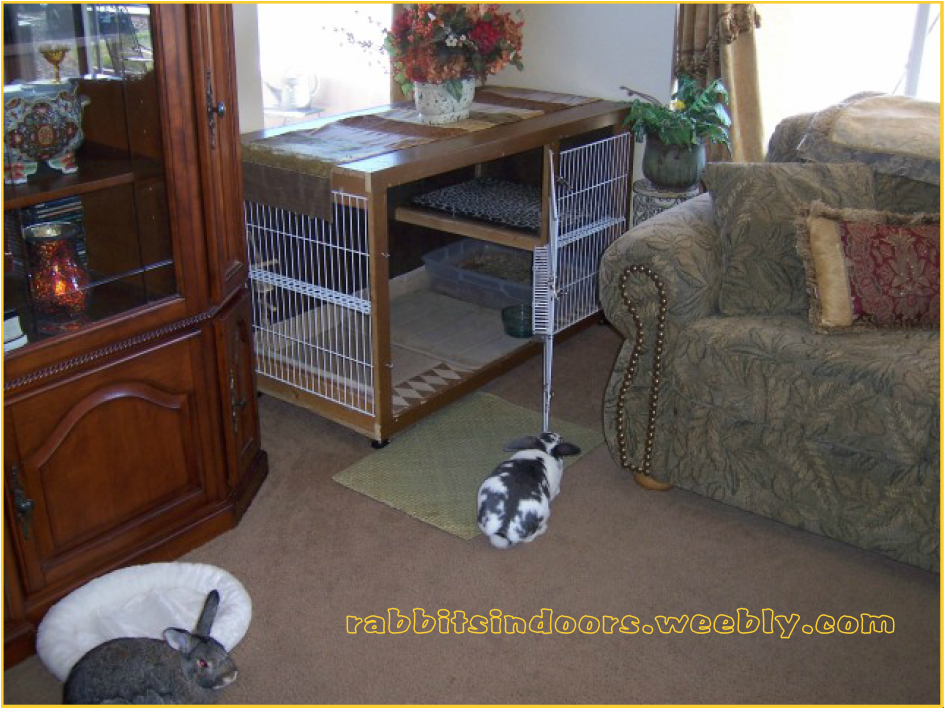Egg larva pupa and adult. House fly lifespan House flies do not stray far from home during their short lifespan adults typically live a mere 15 to 25 days depending on the temperature.
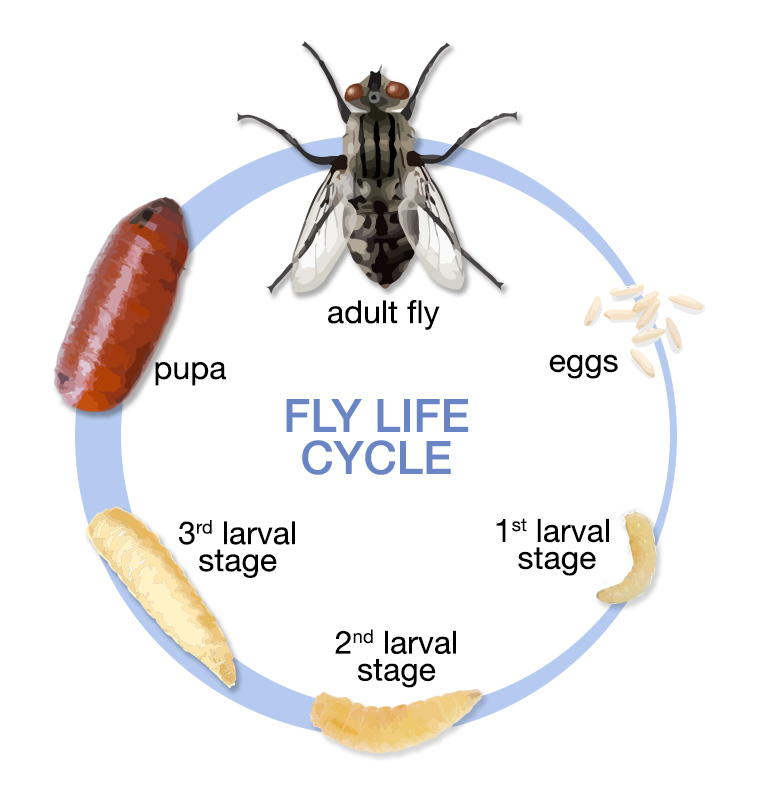 Where Do Flies Come From Live Fly Inspection Guide
Where Do Flies Come From Live Fly Inspection Guide
This is a common misconception but its not true of most flies that people have to deal with around their home.
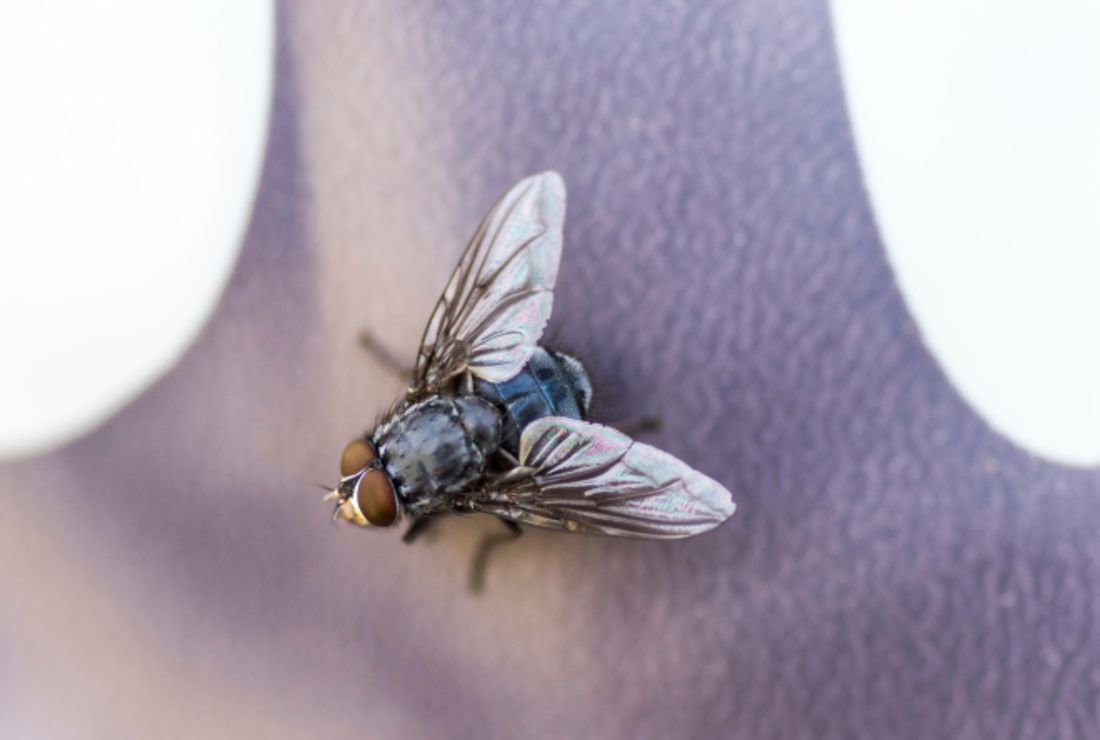
How long do flies live inside. Adult house flies live for up to three weeks. For example fruit flies live a little longer than house flies. Flies have a relatively short lifespan contrary to the popular belief that they live for a mere 24 hours.
In addition to overwhelming homeowners with numbers house flies spread disease and fruit flies spoil food. Within 2 days theyre all grown up and ready to mate too. Within 30 hours tiny maggots hatch and start to eat the decayed food.
At 99 degrees Fahrenheit a house fly egg hatches in about 8. How long do flies live. During the summertime flies can lay eggs in meat and vegetable scraps in your trash can and can go through an entire generation in less than a week.
While that transition may seem quick a fruit fly only lives 8 to. Life Cycle Of Houseflies. Adult houseflies live anywhere from 2 to 4 weeks and are considered pests not only because they can physically annoy people but also because they can transfer certain diseases.
Mayflies however usually only have a 24 hour lifespan. These insects die after about 40 to 50 days. The common drain fly lives about 12 days.
Dont worry cluster flies do not breed indoors. Life Expectancy of House Flies Houseflies pass through four distinct stages. On average a fly can live two to three weeks.
It breaks down the insect over 5 to 12 days then spits. The lifespan of a fly can also depend on the species. The larvae develop into cocoons before hatching into adult flies.
Apart from this at night the temperature is a bit lower and this makes them slow and lazy. At 95 F that time is shortened to 7 days. The truth is that flies can live up to a few months but most live between two weeks and a month.
It mates and lays eggs once during this time. The adult flies are attracted to the sunny side of homes in the fall looking for ways to get inside before winter. House flies are not only a nuisance.
Can I Use Pesticides. 18 rows For instance. When a fly gets in the plants trap it closes around the fly.
It then secretes digestive fluid to dissolve the insects soft insides. At 60 F it takes a house fly about 45 days to go through its life cycle. When fly maggots finish feeding they often crawl away and pupate in dark secluded places.
The larvae hatching from the egg feed on organic material for about 18 days before transforming into pupae which will develop into adults after roughly five days. Unfortunately the typical home or business provides the perfect living conditions for these insects. These pests live longer as adults in cooler places but breed faster in warmer climates.
Cluster fly larvae develop inside earthworms living in the ground outside of homes. The length of their life cycle depends on where the flies are. Like house flies they can yield several generations during this time.
They are thought to carry more than 100 diseases. House flies and other larger flies that usually infest a house can live for days maybe even months. The life expectancy of a housefly is generally 15 to 30 days and depends upon temperature and living conditions.
Sometimes these maggots or pupae shown at right are seen by homeowners who do not know what they are. Just one female fruit fly can produce up to 500 offspring. Flies dwelling in warm homes and laboratories develop faster and live longer than their counterparts in the wild.
Most species of flies including house flies bottle flies flesh flies etc are active during the day and become inactive during the nightThese species of flies need polarized light to guide them visually.
Regardless of housing it is best to ensure your bunny has at least two to three hours of human-rabbit interaction a day. Fast they will have room to jump and stretch they will usually jump up on the bed.
Rabbits dont need to graze on grass as long as they have ample hay and water.
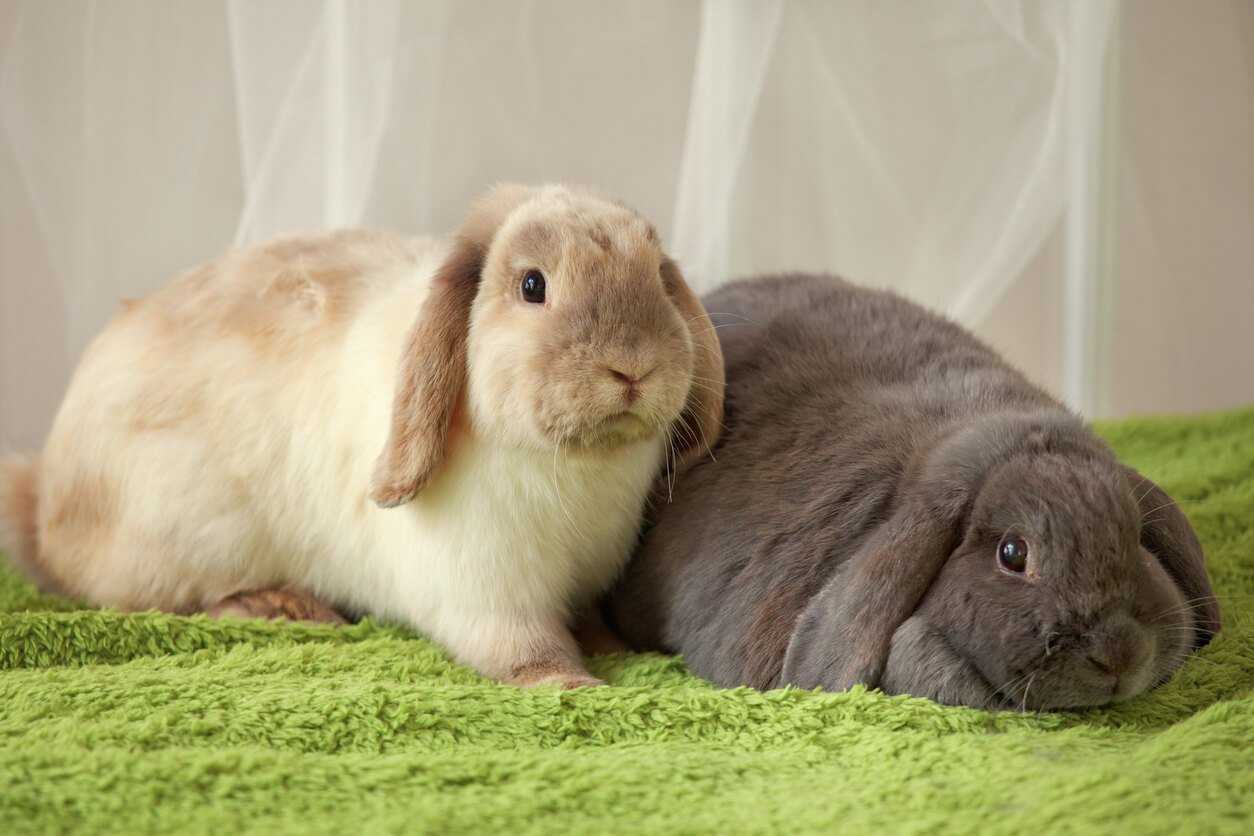
Can a rabbit live inside. Your bedroom bunny may even try to make your bed. Should your pet rabbit live indoors or outdoors. An indoor rabbit is unlikely to grow a much thicker coat for the winter as it is always warm inside.
Rabbits are also extremely social animals so its recommended they should always be kept in neutered pairs ideally male and female so they dont become lonely. What its like living with an indoor rabbit Free range rabbit. Humans have introduced the best-known species of rabbit the European rabbit to every continent except Antarctica.
Our rabbits can happily live indoors or outdoors but as the weather gets cooler you might have a few questions about moving your furry friends inside to escape the elements. You might find that you can trust your rabbit. We might see rabbits as traditionally outdoors pets but just like any other pet they feel the cold and can suffer in bad weather if they dont have the right home to live in.
But Can Rabbits Live With Chickens. However as they can live up to 10 years old they are a long-term commitment and have complex care and nutritional requirements that need to be carefully considered. If playback doesnt begin shortly try restarting your device.
So why shouldnt they live outside. A free-range life works really well for us but not every rabbit can be left out without supervision even in a rabbit-proof house or room. Having your pet rabbits in the house makes it easier to interact with them and makes them more sociable as well as easier for you to keep an eye on them for any changes in.
Rabbits live in a wide range of environments fromwoodsand meadows to grasslands and forests deserts and wetlands. House rabbits and other animals. Take cats and dogs for example these are two animals which can live inside outside or a mixture of both.
At My House Rabbit we advocate that pet rabbits live inside your home as opposed to outside in a hutch. Wild rabbits have a much shorter lifespan than domestic rabbits. Get a tent and a sleeping bag.
Rabbits can be litter box trained. All around the world rabbits can be found living in the wild being kept as pets and bred for food. Indoor rabbits are less used to the weather than rabbits kept outdoors so keep a close eye on them in case they get distressed over changes.
More and more rabbits are being kept as house pets and why not - cats and dogs live indoors too. Otherwise the shock when you put it back outside may be very harmful to it. Provided you rabbit-proof all areas accessible to your bunny theres no risk.
The benefits of living inside are longer lifespan safe from predators less danger of overheating and freezing more human interaction making them friendlier and an easier to care for rabbit. Dogs should be trained to respond to commands before being trusted with a free-running rabbit and supervision is needed to control a dogs playful impulses this is. If the room is carpeted they can get traction to run REALLY.
If you were planning on just putting a little extra straw for a rabbit inside an existing chicken coop the answer is probably no. The safest place for a rabbit to live is inside the home. In our opinion rabbits should be living insideor at least somewhere sheltered like in a garage or shed.
Pet rabbits are much safer indoors since they are not faced with the predators parasites or extreme temperatures that are typical of outdoor living. This will help your rabbit feel comfortable around you and others. Yes a rabbit can live happily in a bedroom size area.
Answering the question of whether rabbits can peacefully coexist with chickens isnt so straightforward. But as long as you take the necessary precautions rabbits make great indoor pets. Some rabbits need a big cagefenced area for their own safety.
You as a human are perfectly capable of living outside for prolonged periods of time. Domestic rabbits were originally wild animals not designed to live around radiators electricity and the likes. And that theyre not the kind of family pet that you can live with as a companion.
Their outdoor run should be placed somewhere shady and protected from wind and changes in the weather. If you have an outdoor rabbit you can bring it inside to play but only do this for short periods of time during the day. House rabbits and indoor cats can get along fine as do rabbits and well-mannered dogs.
Rabbits are easily toilet trained and they make fabulous indoor companions and keeping them inside ensures they are safe from predators and disease. Not only will you ensure your bunny is protected from severe weather and predators your bunny will become more of a member of your family when living inside with you because there tends to be more social interaction that way. In extreme weather conditions keep your bunnies safe inside.
I know several devoted rabbit parents that have bunnies living in bedrooms. But this is not to say they cannot live happily in these environments. Well think about it for a second.
Some organizations now strongly urge that you keep house rabbits indoors at all times. You must make sure your rabbit is in the right enclosure has the right conditions and plenty of ways to regulate its.
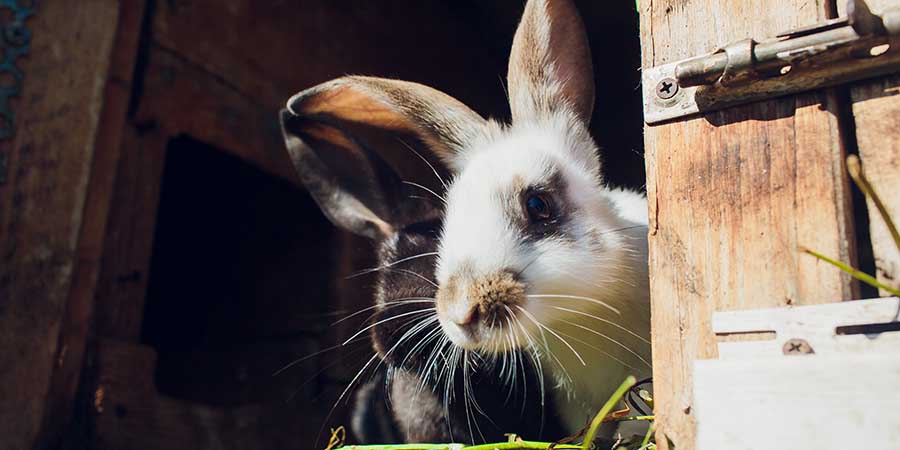 Vet Q A Should I Keep My Rabbits Inside Or Outside Pdsa
Vet Q A Should I Keep My Rabbits Inside Or Outside Pdsa
If you want to consistently keep rabbits out of your yard and get bonus points with your gardening family then buy a dog.

Do you keep rabbits inside or outside. Both indoor and outdoor rabbits can have happy healthy lives so its up to you and your bunny pals to decide whether inside or outside is best for them or maybe even a combination of both. If you have more time on your hands keeping a rabbit outside wouldnt be as hard for you. Regardless of housing it is best to ensure your bunny has at least two to three hours of human-rabbit interaction a day.
Traditionally pet rabbits have often been kept outside in a pen or hutch And since you see wild bunnies hopping around all the time you may assume that your pet will do fine outside as well. Your rabbit needs to get out and exercise. If you are going to keep your rabbit indoors or outdoors you should consider keeping them in pairs.
It typically only takes one or two times for a dog to chase a rabbit for it. But there are many factors to consider. In extreme weather conditions keep your.
Indoor rabbits are less used to the weather than rabbits kept outdoors so keep a close eye on them in case they get distressed over changes. If predators visit your yard or your state is prone to extreme hot or cold weather indoors is safer. An exercise run will allow your rabbit to stretch its legs and they should be able to.
As long as you are supervising your rabbit it is absolutely okay to bring them outside. Rabbits have a lot of predators so they naturally like to keep safe. You also want to avoid taking your rabbit out on days when its very hot.
The House Rabbit Society receives many calls every week from baffled people whose rabbit died during the night while confined in a hutch. Any less and they may think of you as a predator and hide. You must be very careful and diligent in doing so.
If you eliminate the safety attraction it will help to keep the rabbits from hiding on your property. In the case of extreme heat or severe snow theres no wondering or hoping that your outdoor rabbits are okay because your rabbit is comfortable inside. Aside from predators keeping your rabbit inside also keeps them safe from weather conditions.
But living outdoors satisfies a rabbits wild instincts. Rabbits actually cope better in moderately cold temperatures than they do in warmer environments due to their thick fur a comfortable temperature for you may not be comfortable for your rabbit. Therefore provided with a big enough enclosure they can binky around everyday day having all the rabbit fun in the world.
There are risks involved but if youre careful to avoid them you can. When inside its rabbit hutch your fluffy friend will likely be more comfortable temperature-wise. A rabbit cannot be kept in a cage or hutch all day.
You may find it relaxing for you as an owner to keep your rabbit inside. To keep your rabbit outdoors you will need to invest in a good hutch and exercise run. First dogs mark their territory which deters rabbits from staying very long.
Although a lot of pet organisations and experts have started advocating only ever keeping pet rabbits indoors. Just remember that having the right setup for your rabbits and making sure you can provide everything they need is much more important than whether you keep your rabbits inside or outside. Their outdoor run should be placed somewhere shady and protected from wind and changes in the weather.
Rabbits are social creatures that enjoy companionship. Rabbits are easily toilet trained and they make fabulous indoor companions and keeping them inside ensures they are safe from predators and disease. Others believe rabbits should live inside but have the experience of exploring the garden or patio while other owners believe rabbits should be kept inside 247.
Bushes low hanging branches and other shelters make ideal hiding places for rabbits. By letting your dog play in your yard it helps deter rabbits in several ways. Hutches or cages do not provide enough protection to make it safe to leave the rabbit outdoors 24 hours a day.
You will need to check your rabbit over for parasites around their bottom when you bring them back inside and make sure you keep an eye out for any predators while they are outside including birds like hawks. The benefits of living outside for pet rabbits is they are less likely to be injured or poisoned less hair inside your house less smell though this can be abated by frequent cleaning and use of specialty litter not as limited by the space ability to separate from other household pets and. Next they will bark and chase after deer.
Keeping them in pairs will help prevent loneliness as a bonded pair will be friends for life. There are many people who believe rabbits should be exclusively housed outside either in the backyard in a hutch or in the garage. If your rabbit can go into your garden they will have access to the clean fresh air outside.
If you live in a very hot place it would be best to keep your rabbit inside as they can suffer heat strokes in weather warmer than 75 degrees farenheit. Where you decide to house your pet depends on the amount of space that you have available your lifestyle choices and your rabbits temperament. Rabbits dont like wide open places as much as places that allow hiding or burrowing.
The pros and cons of keeping rabbits outdoors. Rabbits do better in cooler weather and can. This will help your rabbit feel comfortable around you and others.
Keeping them outside isnt impossible or unheard of. Rabbits are a common stress-relieving pet and if this is your. Rabbits can live indoors or outdoors.
The hutch should be made of solid wood be large enough that the rabbit can stretch up on its hind legs and take three full hops in any direction if you are keeping two rabbits increase the dimensions.
Some have different backgrounds that has resulted in a change in the way they look at us humans. And their fur acts like a waterproof coat which helps protect them from both the rain and the cold.
 Vet Q A Should I Keep My Rabbits Inside Or Outside Pdsa
Vet Q A Should I Keep My Rabbits Inside Or Outside Pdsa
More importantly its easier to socialize a rabbit when they are kept indoors which is better for their well-being in the long run.

Do rabbits like being inside. Do Rabbits Have A Homing Instinct. Its not that they dont like the decoration in your house - its more that they have an insatiable urge to chew to keep their teeth short. Rabbits do not easily like you or get used of you easily so you have to get their trust.
Rabbits only drop soft pellets which they re-digest in their home. Remember they are prey animals and for the first day or two they dont know if you are going to eat them or not. Rabbits are super cute and fluffy and the human being tends to want to hold cuddle and pet the rabbit.
There are pros and cons to both approaches. Similar to being pet on their backs they may be startled at first when you go to pet their cheeks. Others will show their affection simply by being in.
If you do decide to settle your rabbit outside there are additional considerations. The most important thing you should remember is that rabbits generally do not have a homing instinct. While they can become used to their new homes and even bond with their owners over time they generally will not return home.
Alternatively some rabbits will become depressed and withdraw completely when theyre lonely. That doesnt mean he doesnt like you. Deciding whether your rabbit will live outdoors or inside is an important concern.
This is a good sign that your rabbit. They can be easily frightened of you. I certainly wouldnt say that rabbits domestic rabbits anyway dislike humans.
Some rabbits will deign to sit quietly on their owners lap - more often theyll prefer running up to their owners for some gentle pets and then running off when theyre done. Once your rabbit is used to being touched all the way down their back you can start to give them a full body massage. Noises rabbits make when happy include purring sighing and honking grunting or oinking Distressed noises in rabbits include a loud yelping or squealing or even screaming.
One way they have done this is through their fur. Rabbits make noises to communicate what they think or feel. If your rabbit is angry it will growl.
Because theyre in the house with you indoor rabbits are more likely to receive regular love and attention. If the rabbit sniffs or nudges you with his nose do not move away. Rabbits are shy animals and they take time to get attached with you.
Before you bring your rabbit inside though there is a certain amount of rabbit-proofing that needs to be done. Rabbits are curious and like to investigate new things in their environment. An indoor rabbit is unlikely to grow a much thicker coat for the winter as it is always warm inside.
Many rabbits also enjoy being pet on their cheeks. Being super gentle with your rabbit is a great approach to get them more. Overall it is better for your rabbits health if you keep both of them indoors.
Of my two newly-adopted buns one of them the 78-month-old-male is exceptionally friendly and affectionate. Watch out for destructive behavior like hyperactivity anger and self-destructive actions like pulling at its fur gnawing on the bars of its cage or overeating. Young children should be introduced to rabbits in a calm manner carefully letting the bunny sit on their laps at the rabbits own will.
Rabbits arent particularly keen on being carried large distances so try to keep the trip from Eglu to inside as short as possible. During the winter do not bring your rabbit inside at all - the sudden temperature change when you put it back outside can be fatal to your rabbit. So let your rabbit come to you first.
Rabbits are prey animals and very independent and even after a rabbit settles in he may never enjoy being cuddled like a puppy would. Give your rabbit scritches up and down their back and massage them until they melt into the floor. Rabbits do this to get your attention and may begin to act out when they dont get it.
If you could look inside a rabbit warren you would notice that it is spotless. Indoor rabbits dont have to deal with bad weather a higher risk of diseases or predators on the loose. Their little noses are constantly wiggling to learn about their environment via smell.
If I am sitting in the pen hanging out with them some will come close to check me out. How do bunnies stay dryer and warmer than humans. As you are petting their.
One of the original rabbits I started with is named Blacknoser she likes to come close and because she is so friendly she is the only old rabbit. Pet rabbits are much safer indoors since they are not faced with the predators parasites or extreme temperatures that are typical of outdoor living. Different noises usually relate to emotional states that your rabbit may.
Mostly bunnies do not like to be held because it is in their instinct and some of the bunnies have the cuddly personality. Rabbits only drop soft pellets which they re-digest in their home. Rabbits make noise to communicate.
If you have an outdoor rabbit you can bring it inside to play but only do this for short periods of time during the day. If a bunny has the choice of getting indoors and somewhere warmer then just like us they will move inside if they are getting miserable outside. He took to me from our first meeting and though its t.
Rabbits are sociable creatures and can become lonely and depressed very easily so being surrounded by people may help their health and increase their mental well-being. If youre leaning toward placing your rabbits hutch outside consider the following. Otherwise the shock when you put it back outside may be very harmful to it.
If you have a bonded pair of rabbits you should keep them together in the same cage. Rare individuals bounce up close and even appear to like being held and petted. Rabbits have adapted to lower temperatures than humans.
4 Treating them like an object Rabbits are highly intelligent and often timid animals. The other hard pellets are all dropped outdoors.
This is particularly important if you live in a country such as Australia where mosquitos and fleas carry diseases that are fatal to rabbits such as myxomatosis. When rabbits live indoors with you you are able to monitor their health condition and behaviour more easily than if they were outdoors.
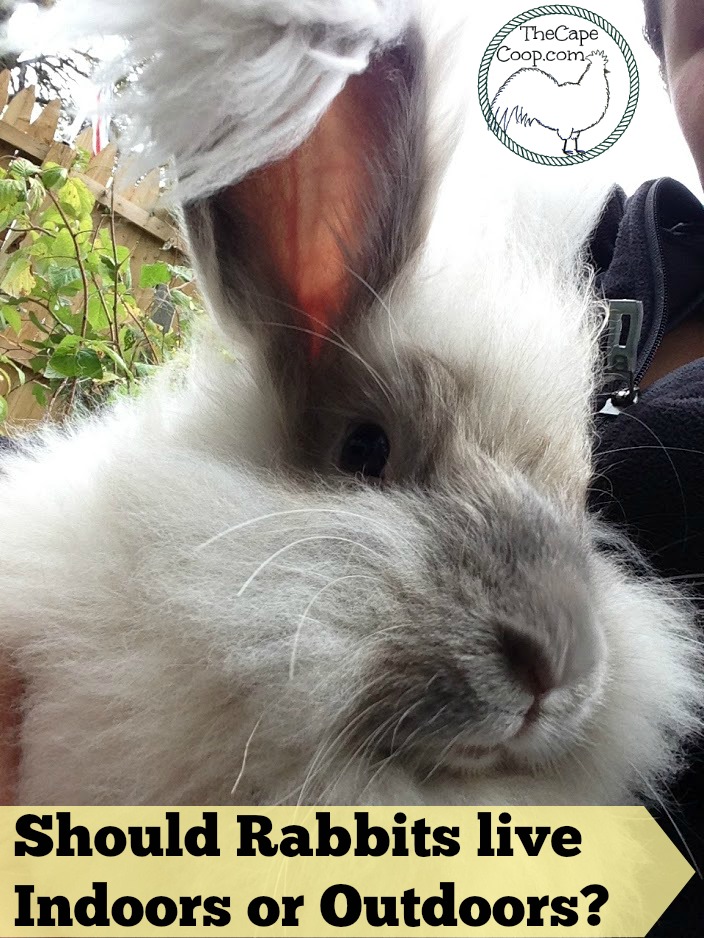 Should Rabbits Live Indoors Or Outdoors
Should Rabbits Live Indoors Or Outdoors
But this is not to say they cannot live happily in these environments.
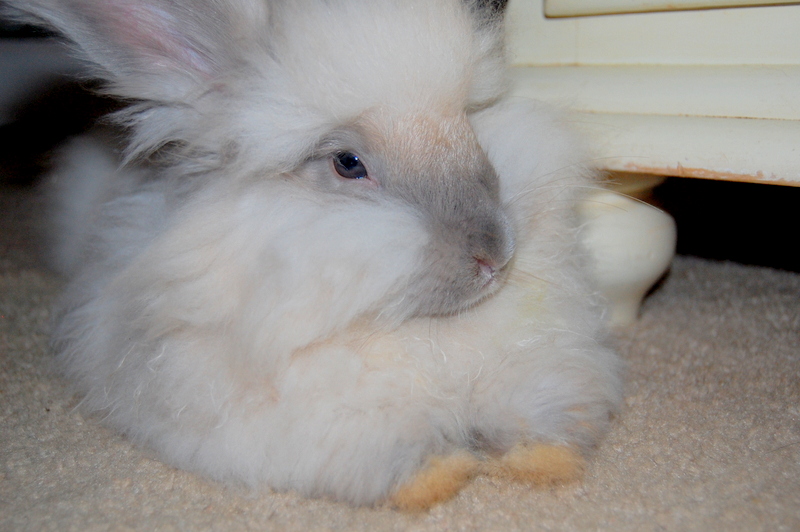
Should rabbits live inside. He too is cold and lonely. Access to safe hiding spaces within their environment is important as. Wait Until the Spring.
So in this respect I would recommend you keep your bunny inside. Take cats and dogs for example these are two animals which can live inside outside or. If your rabbit is going to live outdoors theyll need a large sturdy hutch.
The benefits of living inside are longer lifespan safe from predators less danger of overheating and freezing more human interaction making them friendlier and an easier to care for rabbit. You can also protect them from predators and reduce risk of catching myxomatosis or calicivirus. Rabbits are sociable creatures and can easily be house-trained and toilet-trained like dogs and cats.
Keeping rabbits inside your home If you decide to have one rabbit you need to be prepared to give it all of the attention and companionship it needs. Rabbits are sociable creatures and can become lonely and depressed very easily so being surrounded by people may help their health and increase their mental well-being. Bunny-proofing your home is part of living with a house rabbit.
Indoor rabbits will probably live longer. More importantly its easier to socialize a rabbit when they are kept indoors which is better for their well-being in the long run. It is natural for rabbits to chew on furniture rugs drapes and most deadly of all electrical cords.
Rabbits are naturally sociable so they need companionship of their own kind. Having your pet rabbits in the house makes it easier to interact with them and makes them more sociable as well as easier for you to keep an eye on them for any changes in their health or behaviour. Their outdoor run should be placed somewhere shady and protected from wind and changes in the weather.
They will be much happier living in pairs or compatible groups and will become very lonely if kept on their own. Indoor rabbit cages are a matter of preference. One of the first things you will learn if you do your homework is that your rabbits area will need to be bunny-proofed.
In extreme weather conditions keep your bunnies safe inside. Rabbits are active and will need an environment with plenty of room to hop run dig and stand fully upright on their back legs as well as stretch out when laying. If you have other pets or children we would recommend getting a rabbit cage.
They are safer from poor weather conditions threatening animals and are generally happier rabbits. If your rabbit is living outside its also worth remembering that they should be fully protected from potential predators. Aside from predators keeping your rabbit inside also keeps them safe from weather conditions.
If youve built your hutch and run well enough they should be impenetrable to predators. Indoor rabbits dont have to deal with bad weather a higher risk of diseases or predators on the loose. We might see rabbits as traditionally outdoors pets but just like any other pet they feel the cold and can suffer in bad weather if they dont have the right home to live in.
I cannot tell you how many people do not do this and it is a formula for failure especially if you are considering having the rabbit live indoors with you and your family which is a must. More and more rabbits are being kept as house pets and why not - cats and dogs live indoors too. Our rabbits can happily live indoors or outdoors but as the weather gets cooler you might have a few questions about moving your furry friends inside to escape the elements.
When it is raining and cold you may not go out to feed or check on your rabbit. Because theyre in the house with you indoor rabbits are more likely to receive regular love and attention. How to Transition a Rabbit Outside Build a Safe Outdoor Rabbit Hutch and Run.
Pet rabbits are much safer indoors since they are not faced with the predators parasites or extreme temperatures that are typical of outdoor living. Should your pet rabbit live indoors or outdoors. It is easiest if rabbits are kept together from birth but rabbits less than 12 weeks old will usually live together happily.
If you have a bonded pair of rabbits you should keep them together in the same cage. A secure and well-ventilated living place thats dry and draught free is essential for your rabbits wellbeing. Domestic rabbits were originally wild animals not designed to live around radiators electricity and the likes.
Overall it is better for your rabbits health if you keep both of them indoors. Some people prefer not to have a cage at all for their rabbits. Others prefer to let their rabbits sleep in the cage but allow it to roam free during the day.
Indoor rabbits are less used to the weather than rabbits kept outdoors so keep a close eye on them in case they get distressed over changes.
